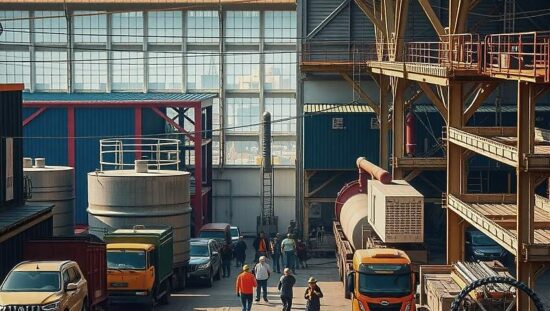A concerning exodus of production is gripping Germany’s energy-intensive industries, according to a new survey revealing a significant shift in investment strategies and a palpable sense of declining competitiveness. The study, conducted by consulting firm Simon Kucher and detailed in the Handelsblatt, surveyed 240 senior managers across foundational chemical, steel, glass and cement sectors in Europe and the United States. The findings paint a bleak picture of German industrial resilience.
The survey indicates that 31% of German respondents are actively relocating production to other continents, primarily targeting regions with lower energy costs and more favorable regulatory environments. A further 42% are opting to invest in other European nations or postponing planned investments within Germany altogether, effectively signaling a vote of no confidence in the nation’s industrial future.
Industry observers confirm this worrying trend. Christof Günther, Managing Director of Infraleuna, a chemical park operator, remarked that many companies have struggled to adequately utilize their facilities for years and now perceive a definitive lack of prospects within Germany. He warned of a continuous and irreversible loss of industrial value creation.
The scope of the maneuver has drawn the attention of legal experts. Yvonne Hanke, a lawyer at Ritter Gent specializing in advising energy-intensive companies, notes that while considering investment relocations is commonplace, the current situation represents a tangible escalation. She reported witnessing a distinct increase in companies committing to investments in locations like China, India and the United States, moving beyond mere contemplation.
This outflow raises critical political questions regarding Germany’s energy policy, industrial competitiveness and long-term economic strategy. The government’s ongoing efforts to address energy costs and streamline regulatory processes appear to be falling short, prompting a profound reassessment of the nation’s role as an industrial powerhouse. The emigration signifies not just an economic challenge, but a potential erosion of crucial expertise and a weakening of Germany’s global standing. The accelerating shifts necessitate a bold and immediate policy response to prevent further, potentially irreparable, damage.





